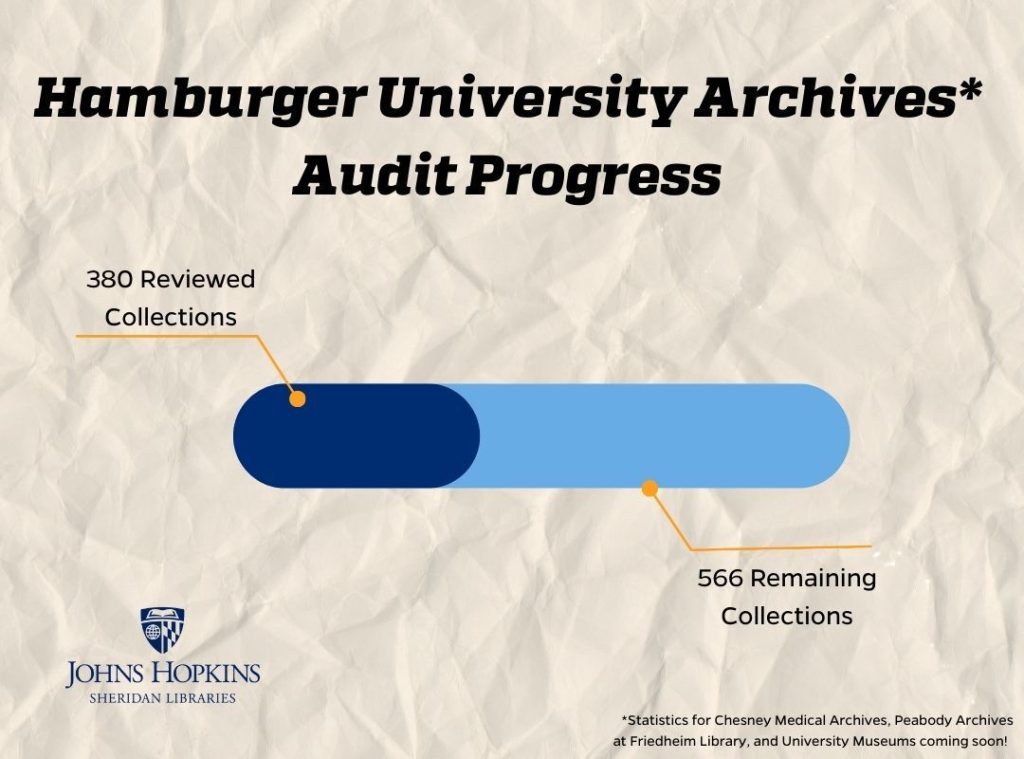The Johns Hopkins Libraries, Archives, and Museums have a responsibility to the people and communities who create, use, and are represented in the collections in our care. Part of this responsibility is to describe materials in a culturally responsive and respectful manner, and to repair descriptions that contain inappropriate language. Staff are currently engaged in a reparative description effort to review finding aids and catalog records, remediate these collections, and update Johns Hopkins Libraries, Archives, and Museums descriptive policies with guidelines to reflect this praxis.
Users may encounter language that is inaccurate, outdated, and even offensive or harmful in Hopkins finding aids, such as language that is racist, sexist, ableist, homophobic, or demeans the humanity of the people we describe. Some of this description may have been written by staff, or may reflect language that record creators used themselves. In some cases, this language is retained intentionally to honestly and accurately reflect prejudice found in Hopkins’ collections, even as we recognize that encountering harmful or offensive language can be difficult or painful.
The Johns Hopkins Libraries, Archives, and Museums are committed to redescribing and contextualizing these records as we identify them, and we invite you to email specialcollections@lists.jhu.edu if you encounter harmful language in Hopkins finding aids or collections.
Our Goals
- Improve the discoverability of underrepresented and historically marginalized communities through the audit and repair of description
- Contextualize and edit harmful and/or outdated description
- Use the principles of care, respect, inclusion, accessibility, and transparency to create and revise description
- Seek feedback from communities on what descriptive language they would like to see used within our collections
- Share this work with the communities, stakeholders, and partners we serve
- Embrace accountability, acknowledging the iterative nature of this work and the flexibility needed to shift based on evolving terms, languages, and feedback from communities
- Collaborate with archivist colleagues across the institution
- Embed reparative archival description practices into our workflows and procedures
- Make time for continuing education and consultations with peers doing this work
- Engage in a practice that allows us to question systemic inequities and injustices
